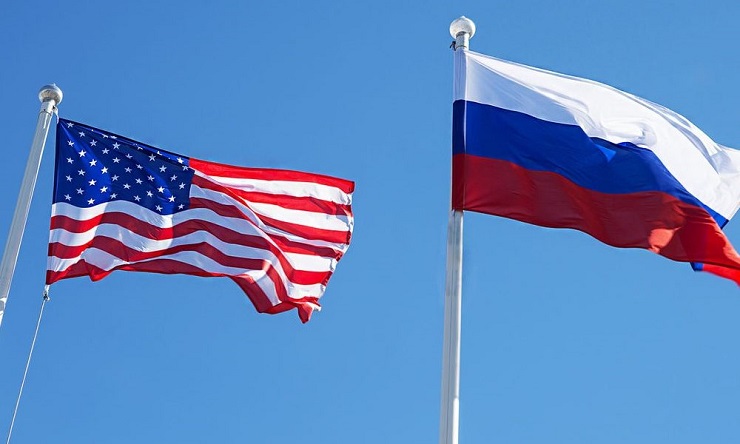A meeting between Russian president Vladimir Putin and United States president Joe Biden has been scheduled for June in the Swiss city of Geneva. It appears that the impetus for the meeting came from Biden who has displayed more enthusiasm for the meeting than his Russian counterpart.
The Russian scepticism is well founded. There is nothing in the American words or actions to suggest that they have had a change of heart toward Russia, with the possible exception of Biden’s apparent abandonment of American hostility to the completion of the pipeline from Russia to Germany that is now scheduled for completion in September of this year.
The cause of the American change of mind is not clear. In all likelihood it is because they have been unable to convince the Germans to abandon the project. The pipeline has always been a major German project with German industry seeing it is vital to their continued competitiveness. The major German opposition is coming from the Green Party who may very well win the German elections, also scheduled for September.
It is a measure of how far the German Green Party has evolved since it’s early days that their position on the pipeline has evolved to the point where they are now aligned with the most reactionary of the United States forces.
The real reason for Biden’s enthusiasm for the summit with Putin boils down to the fact that the Americans wish to concentrate their antipathy towards China whom they see as the major threat to their earlier position as the world’s number one power. An attempt to separate Russia and China is seen as an essential component of the American strategy. It is unlikely to succeed. There are a number of reasons for this.
The first is that the Russia – China relationship has been steadily growing for at least the past decade, assisted by the considerable personal relationship between the two heads of government, Putin and Xi respectively. The Russians have been the subject of relentless economic and social warfare from the Americans for nearly the whole of the 20 years Putin has been in power.
The gestures by Biden preceding this meeting have not altered the reality of the relentless United States pressure upon Russia that began at least in the Obama era and included the confiscation of a Russian consulate building in the United States that has still not been returned.
The pressure is manifest also in the clumsy attempted coup in Russia’s near neighbour of Belarus, and the United States support for Ukraine which has shown no inclination to abide by the terms of the Minsk agreement regarding the two breakaway Ukrainian territories of the Dombass.
The recent visit to Ukraine by United States secretary of state Antony Blinken cooled the Ukrainian ardour for a confrontation over Donbass. While this cooling over the Donbass is welcome, whetherit lasts is an open question. Ukraine president Zelensky appears not to be in control of the forces pushing for action against the Donbass. His continued ignoring of the terms of the Minsk agreement is the best indicator of his true intentions.
Certainly, the recent moves by Biden for a better relationship with Russia has not impressed Russian Foreign Minister Sergey Lavrov. In a recent interview with the newspaper Argumenty I Fakty, Lavrov made some very pointed remarks about the Americans and their attitude towards Russia.
Lavrov referred to recent United States actions towards Russia that had, he said, created a “highly toxic environment” hindering the development of “a calm and professional dialogue between our countries.” Lavrov pointed out that the then proposed meeting between Biden and Putin should be “based on the principles of equality, mutual respect and balance of interests.” It is clear that he held no great hopes that that would in fact be how the meeting was held.
Lavrov also referred to the deteriorating nature of Russia’s relationship with the European Union. The responsibility for the deteriorating relationship was based firmly at the door of the European Union. He referred to the situation around Alexey Navalny as one example of the European Union’s unwarranted interference in Russia’s domestic affairs. He referred also to the general deterioration in European Union – Russia relations and openly queried whether Brussels actually believed that overcoming the increasing deadlock in the relations was possible given their current attitude and behaviour.
Right at the end of the interview, Lavrov was asked about the growing relationship with China. He replied that the relations were growing rapidly and were currently at the highest point in their history. He noted that by working together, as they are, Russia and China were exerting a positive, stabilising influence on the global and regional situation.
This is the modern-day reality. It will not be changed by Biden’s meeting with Putin whatever hopes the Americans may entertain in that area. Despite gestures towards Russia by Biden, as with Nord Stream 2, the overall force of United States policy toward Russia remains one of confrontation. United States military manoeuvres in the Black Sea, against Belarus, and attempts to forge relationships with the “stans” adjoining Afghanistan in central Asia are confirmation that the leopard does not change his spots.
Accordingly, it would be unwise to expect too much to emerge from the Biden – Putin meeting in Geneva next month. Lavrov’s interview with Argumenty I Fakty makes it clear that Russian distrust of United States bona fides is deep and well founded.
James O’Neill, an Australian-based former Barrister at Law, exclusively for the online magazine “New Eastern Outlook”.
 RSS Feed
RSS Feed















 June 1st, 2021
June 1st, 2021  Awake Goy
Awake Goy 
 Posted in
Posted in  Tags:
Tags: 













